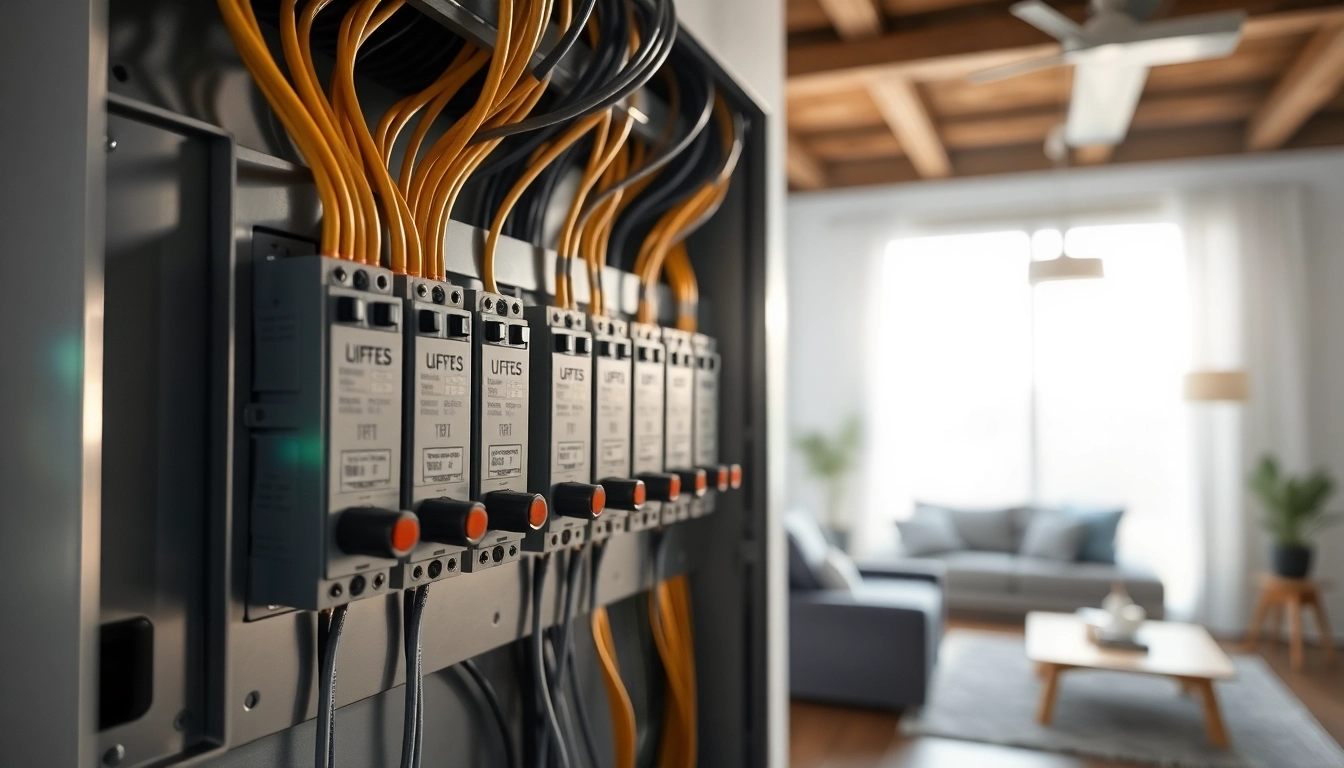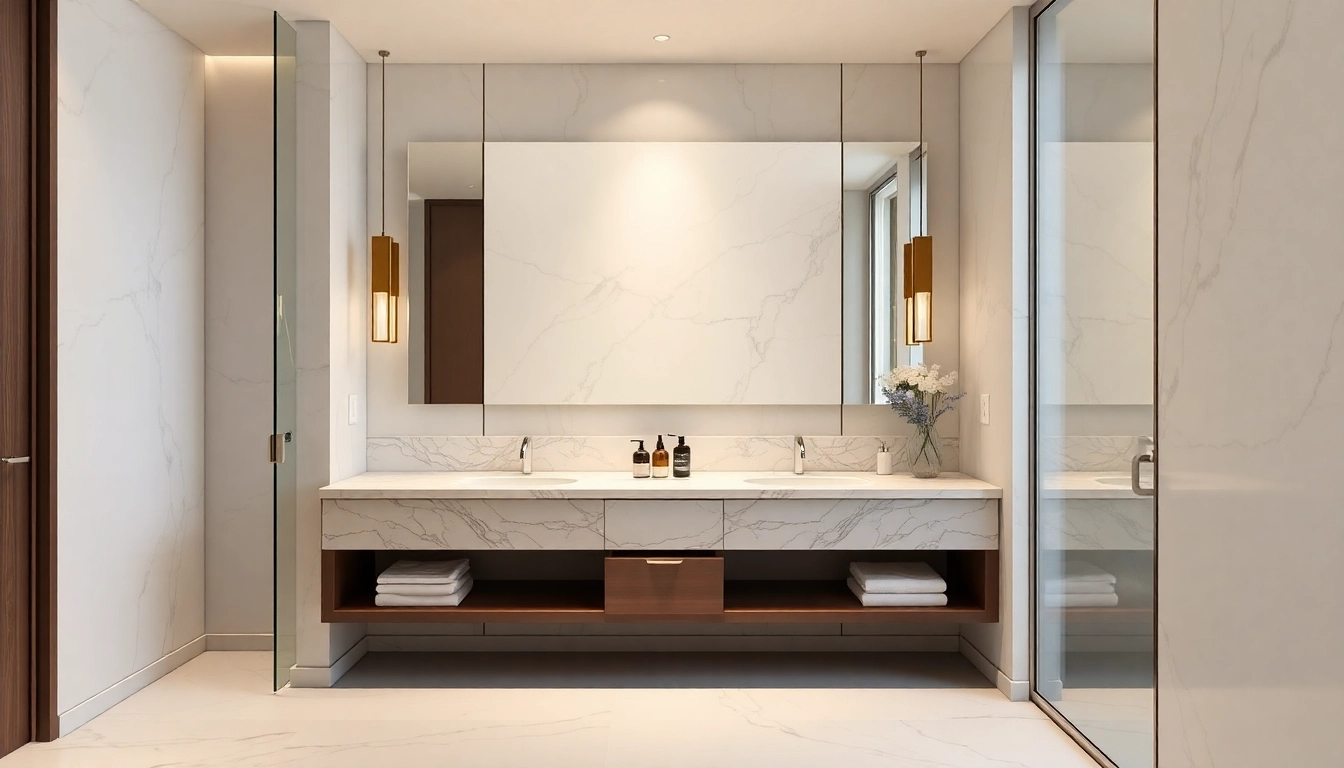Understanding the Electrical Panel
Definition and Functionality
An Electrical Panel, commonly referred to as a breaker box or service panel, is a critical component of a home’s electrical system. It serves as the central hub that manages the distribution of electrical current throughout the house. This vital system controls the flow of electricity from the utility company into your home, directing it to various circuits, such as lighting, appliances, and outlets. The panel contains circuit breakers or fuses that act as safety devices, automatically shutting off power to any circuit that experiences an overload or short circuit, thereby preventing electrical fires or damage to devices.
Components of an Electrical Panel
The Electrical Panel consists of several key components:
- Main Breaker: This is the switch that turns off power to the entire panel, allowing homeowners to safely conduct maintenance or troubleshoot issues.
- Circuit Breakers: These devices protect individual circuits by breaking the electrical connection when an overload occurs. Standard sizes include 15, 20, and 30 amps, depending on the circuit’s needs.
- Bus Bar: A metallic strip that conducts electricity, connecting the main breaker to the circuit breakers.
- Neutral and Grounding Bars: These connections ensure safe disposal of electricity to the ground and are essential for preventing shocks and fires.
- Labeling: Panels should be clearly labeled to identify which breaker controls each circuit; this is essential for ease of troubleshooting and safety during power outages.
Importance of an Efficient Electrical Panel
Having an efficient and well-maintained electrical panel is crucial for several reasons:
- Safety: A functional electrical panel minimizes the risk of electrical fires, shocks, and other hazards by ensuring that circuits are properly protected.
- Reliability: A well-maintained panel ensures consistent power supply, which is vital for modern conveniences like heating, cooling, and essential electronics.
- Code Compliance: Local building codes often require specific standards for electrical installations. A modern panel helps ensure compliance, which is important during property sales or renovations.
- Future Expansion: An efficient panel can support future electrical needs as homeowners expand or modify their living space, such as adding appliances or circuits.
Signs You Need to Upgrade Your Electrical Panel
Frequent Circuit Breaker Trips
If you’re frequently resetting circuit breakers, it’s a clear red flag indicating that your panel may not be coping with the electrical demand. This can happen when the combined load of devices exceeds the capacity of the panel. Occasional tripping can be normal, but consistent issues warrant further investigation.
Inadequate Power Supply for Appliances
As appliances become more advanced, they often require more power. If your older panel lacks enough amperage, you may struggle to run multiple devices simultaneously, especially high-demand appliances like air conditioners, washing machines, or electric heaters. A typical home today ideally needs a panel rated at 200 amps to adequately support a modern lifestyle.
Age and Condition Considerations
The lifespan of an electrical panel generally ranges from 25 to 40 years. If your panel is approaching or has surpassed this age, it’s prudent to consider an upgrade. Older panels may not meet today’s power demands and newer safety standards, which puts your home at risk. Additionally, physical signs of wear, such as rust, burn marks, or corrosion, are major indicators that it’s time to upgrade.
Benefits of Upgrading Your Electrical Panel
Improved Safety Measures
Modern electrical panels come equipped with improved safety features such as arc fault circuit interrupters (AFCIs) and ground fault circuit interrupters (GFCIs). These protect against dangerous conditions that could lead to electrical fires and electrocution. By upgrading your panel, you enhance the overall safety of your home’s electrical system.
Increased Home Value
Updating your Electrical Panel can significantly increase the value of your home. Prospective buyers appreciate a modern electrical system, which demonstrates that your home has been well-maintained and is ready for today’s technological demands. Furthermore, homes with outdated electrical systems can deter buyers or lead to lower offers.
Enhanced Energy Efficiency
Newer electrical panels offer better energy management, allowing for smarter distribution of electricity which can reduce energy waste and lower utility bills. Additionally, they support energy-efficient appliances that can further minimize consumption.
Steps to Upgrade Your Electrical Panel
Assessment of Current Electrical Load
Before upgrading your panel, it’s essential to evaluate your current electrical load. This involves understanding both the existing and anticipated demands placed on your system. Consider consulting a licensed electrician to perform a detailed load calculation, taking into account all appliances, lighting, and any future plans to add new circuits.
Selecting the Right Replacement Panel
Once you determine your electrical needs, selecting the right replacement panel is crucial. Basic options include:
- 100 Amp Panels: Suitable for smaller homes with fewer electrical needs.
- 200 Amp Panels: Ideal for most modern homes, providing enough power for multiple large appliances and smart home systems.
- Higher Capacity Panels: For homes with heavy usage, or those planning significant electrical upgrades (like electric vehicles or home offices).
Hiring Professional Electricians
Upgrading an electrical panel is a complex task that requires the expertise of a licensed electrician. They will ensure that the installation adheres to current codes, prioritize safety, and conduct proper testing. Always choose a qualified professional to avoid potential pitfalls that could arise from improper installation.
Cost Considerations for Upgrading Your Electrical Panel
Factors Influencing Pricing
The cost of upgrading your Electrical Panel can vary greatly depending on several factors:
- Panel Size: Larger panels or those with advanced features will generally cost more.
- Labor Costs: Labor rates differ by region and can significantly impact the overall expense.
- Permits and Codes: Complying with local building regulations may involve permit fees or additional costs for electrical upgrades.
Planning for Installation Expenses
Homeowners should budget for both the panel itself and installation costs. A rough estimate can range from $800 to $3,000, depending on the size of the panel and the complexity of the installation. It’s wise to request multiple quotes from different contractors to ensure you are receiving a fair market rate.
Potential Return on Investment
Although the initial cost of upgrading your electrical panel can be significant, the long-term savings and increased value of your home often outweigh these upfront expenses. Additionally, benefits such as improved energy efficiency and safety can lead to a more sustainable lifestyle and reduced utility bills, creating a tangible return on investment beyond mere aesthetics.



